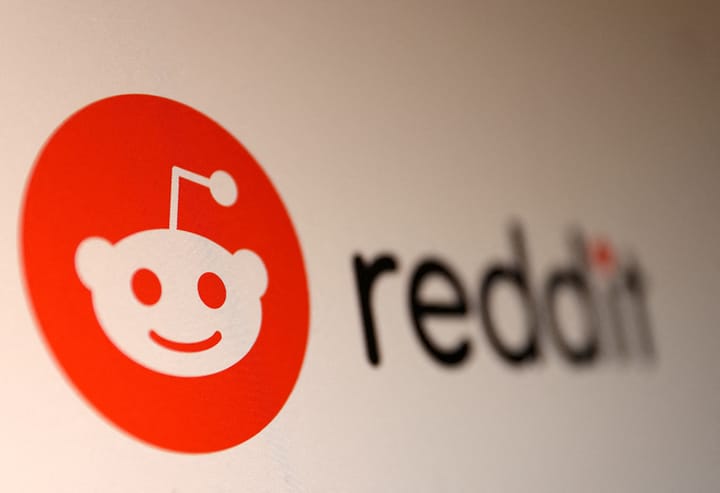Those who get their news on social media are less informed. What can be done about it?

A few minutes every morning is all you need.
Stay up to date on the world's Headlines and Human Stories. It's fun, it's factual, it's fluff-free.
According to data from the Pew Research Center released at the end of July, Americans who get their news primarily on social media are less informed, less engaged and more likely to come into contact with unfounded conspiracy theories.
Pew’s research indicates that about one in five Americans gets their news primarily from social media. While that might not seem like a lot, reports indicate that number has risen significantly in recent years and continues to increase.
Not all groups within society use social media for news purposes, however. Demographic breakdowns from Pew show that, perhaps unsurprisingly, young people are much more willing to use social media as a news source.
48% of 18-29 year olds get their news primarily from social media, making it by far the biggest platform for this group. In addition, 40% of 30-49 year olds also get their news primarily from social media.
Data indicates that social media use for news purposes drops drastically among the older population, down to 9% for 50-64 year olds and 3% for those over 65. Older generations are much more likely to get their news from cable and network news channels and about half of those over 65 still get their news primarily from print sources.
Research indicates that the relevant underlying issues with these different news sources is the level of knowledge and engagement that follows from using each platform.
Those who get their news directly from news websites or applications are the most knowledgeable group, while those who get their news from social media are second to last in terms of being accurately informed, with only local TV news being a worse source for political information – largely because most local TV news rarely delves into politics in any depth.
Pew says that just 17% of those who get their news on social media were shown to have a high level of political knowledge.
Social media isn’t trusted
Although a sizable number of Americans get their news via social media, that doesn’t mean the majority of them feel like it’s necessarily a good source for information. A recent Reuters study found that just 14% of Americans trusted news on social media.
Trust in news overall is also low, with only 32% of Americans trusting news sources in general in 2019, ranking 32nd out of the 38 countries polled by Reuters.
Notably, 50% of Americans said they could trust their own news sources, possibly speaking to the role of cognitive biases whereby individuals tend to give themselves credit while criticizing the habits of others.
While Facebook and YouTube are the biggest social media platforms used as news sources, Instagram is becoming a rising source of information, with 11% of those who get their news on social media using the image-oriented platform to do so.
According to the study, Instagram is especially popular with those under 25, with about two-thirds of that age group using Instagram at least some of the time for news.
What does the future hold?
Social media receives a significant amount of scrutiny for its role in influencing democratic societies and the health of public discourse. Nevertheless, social media platforms remain incredibly popular.
In the United States, YouTube and Facebook continue to be used widely, with 73% and 69% of the population reporting having used these platforms on their mobile devices in 2019. Furthermore, there is no evidence that social media platforms as a whole are losing users despite the increased controversy over social media.
For Paul Barrett, the deputy director of the NYU Stern Center for Business and Human Rights, the pairing of social media and news is dangerous mostly due to the ease at which disinformation can spread among a highly-connected public.
In his report titled “Disinformation and the 2020 Election: How the Social Media Industry Should Prepare,” Barrett predicted that groups in America and abroad will continue to use social media to purposefully spread disinformation and that Americans could be unwittingly influenced by their tactics.
He also noted that the use of deepfakes – altered videos and audio that use Artificial Intelligence technology to make convincing but fake digital content – could also be an increasing feature of social media use.
Despite the problems, Barrett suggested that there is a way forward for social media. By building up its technology to identify and flag deepfakes and removing content that is provably false, social media can start to regain the public’s trust.
Government and law enforcement can also play an important role by weeding out organizations that exist to purposely spread false information, Barrett argues.
In a fast-moving technological landscape, it can be hard to predict what social media will look like in the next 10 to 20 years, but that doesn’t mean steps can’t be taken now to ready the public.
According to Kaiser Moffat, a professional fellow with the Young Leaders of the Americas Initiative, a program run by the US State Department, one of the most crucial changes needed are from those who consume the news.
“As an informed viewer, the onus is on you to first be able to read or view the media and decipher what messages are being conveyed,” Moffat wrote.
“It is pivotal for us to consider the source of the information and ask ourselves what the person’s objective is. This can clarify whether it is a reliable source or not,” she added.
Have a tip or story? Get in touch with our reporters at tips@themilsource.com




Comments ()